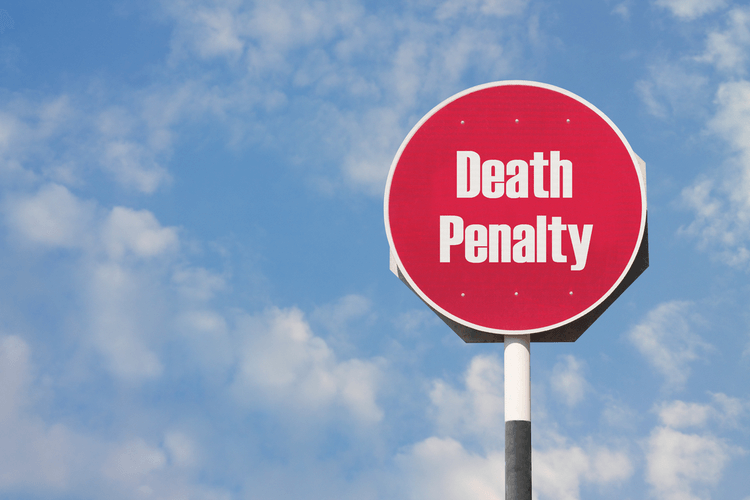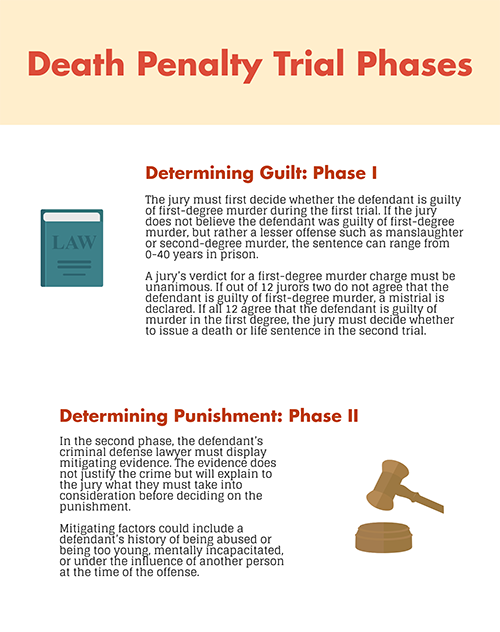

Although a highly controversial subject, capital punishment remains a legal penalty in the United States. A grand majority of states may still impose the death penalty for the most heinous offenses. In Louisiana, cases in which a defendant may be sentenced to death proceed differently from other felony trials. If you have recently been charged with a capital offense, such as first-degree murder, you should understand the brevity of the charges against you and then consult with an experienced criminal defense lawyer in Louisiana to protect your rights.
Double the Trials
Capital trials in Louisiana take longer to conclude than other felony trials. In a capital case such as capital murder, the jury must indict the defendant. This means that there is a separate trial in which the jury determines whether or not the defendant is guilty of the offense. For a capital murder case to proceed, the jury must agree that the defendant is guilty of first-degree murder.
The second trial determines which level of punishment the defendant deserves — a life sentence or the death penalty.
Extended Jury Selection
Jury selection takes longer for capital cases because each juror must be thoroughly questioned to prove that he or she is capable of issuing either a life or a death sentence. They must also consider any and all mitigating factors before determining a life or death sentence. Jurors must be prepared to issue either a life or death sentence; jurors who do not believe in the death penalty may not qualify to serve on the panel.
Although a highly controversial subject, capital punishment remains a legal penalty in the United States. A grand majority of states may still impose the death penalty for the most heinous offenses. In Louisiana, cases in which a defendant may be sentenced to death proceed differently from other felony trials. If you have recently been charged with a capital offense, such as first-degree murder, you should understand the brevity of the charges against you and then consult with an experienced criminal defense lawyer in Louisiana to protect your rights.
Double the Trials
Capital trials in Louisiana take longer to conclude than other felony trials. In a capital case such as capital murder, the jury must indict the defendant. This means that there is a separate trial in which the jury determines whether or not the defendant is guilty of the offense. For a capital murder case to proceed, the jury must agree that the defendant is guilty of first-degree murder.
The second trial determines which level of punishment the defendant deserves — a life sentence or the death penalty.
Extended Jury Selection
Jury selection takes longer for capital cases because each juror must be thoroughly questioned to prove that he or she is capable of issuing either a life or a death sentence. They must also consider any and all mitigating factors before determining a life or death sentence. Jurors must be prepared to issue either a life or death sentence; jurors who do not believe in the death penalty may not qualify to serve on the panel.
Brief History of Capital Punishment in the U.S.
The death penalty has had a long and winding history in the United States. In 1972, the Supreme Court struck down capital punishment statutes and reduced all death sentences pending at the time to life imprisonment. Just four years later, most states issued new capital punishment laws which the Supreme Court approved in 1976. Since then, nearly 8,000 defendants across the country have been sentenced to death. Over 1,400 have been executed, and of these, 161 were exonerated before their execution.
The death penalty is a tricky subject because sentencing a person to death always carries the possibility that an innocent man or woman will be put to death. If you face the most severe felony charges that may put you on death row, it is vital to hire an experienced attorney to defend you in court. With over 24 years of experience defending felony charges in Louisiana, attorney Eric Johnson has the resources you need to craft an ironclad defense strategy. Call 318-377-1555 or email us for a free consultation.

